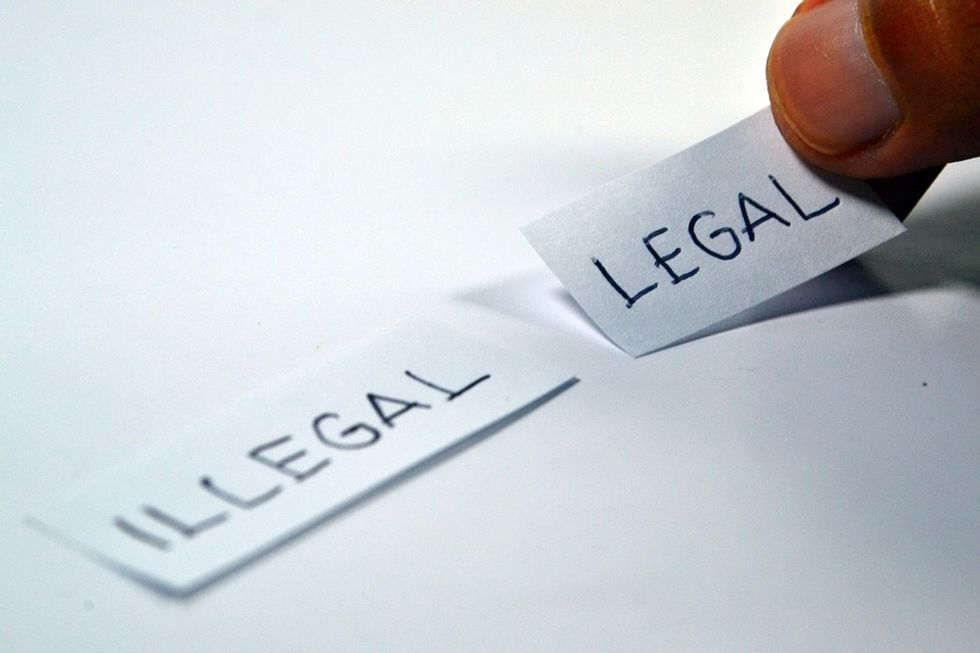2018 has marked a significant change in law and public opinion for recreational marijuana, but in many states, medical marijuana is still illegal or has incredibly restrictive laws which prevent its access for people who could truly benefit.
For Georgia specifically, it's time to take another look at medical marijuana legislation, particularly for these 7 reasons.
1. The heart-wrenching story of David Suzeanna

According to his parents, David suffered up to 10 seizures a day, but after daily marijuana consumption, was seizure-free for 71 days. When David's therapist was informed of his marijuana usage, child protective services were called.
Where are they now? David was in the hospital after the return of his extreme seizures and is now in a group home. His parents are currently fighting the criminal justice system to avoid jail time.2. Medical marijuana could aid in opioid rehabilitation

As the nation faces an epidemic in opioid usage and overdoses, marijuana could help fight drug addiction and aid in the healing process for heroin addiction. Some argue the theory of "harm reduction" therapy, swapping a dangerous illicit drug for a less addictive and damaging drug, could be the answer. With the opioid drug overdose rate of 5.1/100,000 people in Georgia, and a population of roughly 9.7 million, that is nearly 500 lives a year lost to opioid addiction.
3. Haleigh Cox’s journey to gain access to medical marijuana

Haleigh Cox is the young lady behind Haleigh's Hope Act, enacted in 2015, which allows patients registered with the state of Georgia to possess up to 20 oz. of low-THC oil (THC level of 3% or less). Suffering more than 200 seizures a day, Haleigh was under the constant supervision of her parents and had significant delays in cognitive developments. With the use of a unique blend of marijuana oil high in cannabidiol (CBD), her mother claims seizures have been limited to one to two per day.
Where are they now? Even though they are on the registered patient list, they are unable to purchase medical marijuana in Georgia and thus must illegally transport marijuana over state lines.4. There is no record of a fatal dose of marijuana

Marijuana is classified as a Schedule I substance in the eyes of federal law, but unlike many other drugs in this category, there is no record of a fatal overdose of marijuana.
5. Only certain ailments currently qualify for medical marijuana use

Crohn's disease, multiple sclerosis (MS), Parkinson's disease, seizure disorders, ALS, sickle cell anemia or any other for of sickle cell disease, mitochondrial disease, Lou Gehrig's disease, Autism, AIDs, trauma-related head injuries, amyotrophic lateral sclerosis, and last stages of cancer are considered to be qualifying illnesses or ailments.
Note this list doesn't account for mental illnesses, migraines, chronic pain (caused by conditions such as fibromyalgia or endometriosis), anxiety, or insomnia.
6. Blair Brown

Due to grand mal seizures, Blair Brown's memory has been severely affected, erasing memories of her travels, her wedding day, and even the first few years of her young son's life. Her husband, Jim, is never far, checking in every few minutes to ensure another episode is never as detrimental as the time she hit her head in the kitchen or the time she fell in the pool.
For her, access to purchase an oil like Haleigh's could mean returning to a normal life in Georgia.
7. Legalizing medical use could decrease the number of criminal convictions

As the state law stands, possession of less than an ounce of marijuana is a misdemeanor and punishable up to one year of imprisonment. More than an ounce of marijuana is punishable by a minimum of one year and a maximum of ten years imprisonment. According to Savannah criminal defense attorney Jarrett Maillet, a marijuana drug possession conviction in Georgia could have surprisingly serious consequences, including career penalties, rejection from federal financial aid, and inability to qualify for security clearance.
If regulated access to medical marijuana was available in Georgia as well as a broadened list of approved ailments, the state may see a decrease in drug trafficking and incarceration rates.
More than the seven reasons listed above lies the overarching duty for our state and federal governments to protect and serve us in the best way possible. Georgia, in particular, has shown progress in their legislative approval of medical marijuana, such as Georgia Governor Nathan Deal's bill to expand the program, but access to the legal, regulated sale of the plant for Georgians remains nonexistent.
The question then becomes when will Georgia law permit access a plant to help people like Haleigh, David, Blair, and countless others?



















